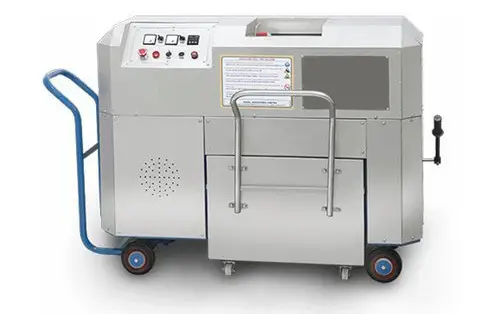Organic waste composter (OWC)
- Home
- Organic waste composter (OWC)
Type Of Services
- Bio Gas
- Demineralization Plant
- Commercial RO Plant
- Industrial RO Plant
- RO Desalination Solutions
- Effluent Treatment Plant (ETP)
- Membrane Bio Reactor (MBR)
- Membrane Aerated Biofilm Reactor (MABR)
- Moving Bed Bio Reactor (MBBR)
- Organic waste composter (OWC)
- Commercial RO Plant
- Sequence Batch Reactor (SBR)
- Sewage Treatment Plant (STP)
- Softener Plant
- Ultra Filtration
- Zero Liquid Discharge Treatment (ZLD)
- Solar Plant
Organic waste composter (OWC)
Organic waste composting is nature’s way of recycling. Composting Biodegrades Organic waste i.e. Food waste, manure, leaves, grass trimmings, paper, wood, feathers, crop residue etc., and turns it into a valuable Organic Fertilizer.

How Does an OWC Work?
- Waste Collection – Organic waste from households, hotels, restaurants, farms, and industries is collected.
- Shredding & Mixing – The waste is shredded to increase the surface area and mixed with microbial culture or bio-enzymes to accelerate decomposition.
- Aerobic Decomposition – The mixture is placed in a composting chamber, where air circulation and microbial activity break down the waste into compost.
- Moisture & Temperature Control – The system maintains optimal moisture and temperature levels to enhance composting efficiency.
- Compost Maturation – After a few days to weeks, fully processed compost is ready for use as a natural fertilizer.
Advantages of Organic Waste Composter (OWC)
- Reduces landfill waste, lowering environmental pollution.
- Converts waste into valuable compost for soil enrichment.
- Helps in zero-waste management for communities and industries.
- Minimizes greenhouse gas emissions from decomposing organic waste.
- Reduces the need for chemical fertilizers, promoting organic farming.
- Odor-free and hygienic waste management solution.
- Supports circular economy by reusing organic waste sustainably.
Applications of OWC
- Residential Societies – Helps in managing kitchen and garden waste effectively.
- Hotels & Restaurants – Converts food scraps into compost for landscaping or farming.
- Hospitals & Institutions – Reduces biodegradable waste in healthcare and educational campuses.
- Agriculture & Farming – Produces organic compost to improve soil fertility.
- Municipal Solid Waste Management – Used in cities and municipalities to handle organic waste efficiently.
- Industrial Use – Factories and food processing units use OWCs for sustainable waste disposal.

Residential Societies

Hotels & Restaurants

Hospitals & Institutions

Agriculture & Farming

Municipal Solid Waste Management


